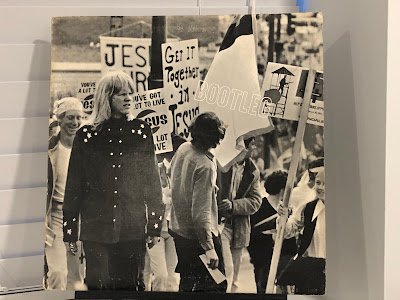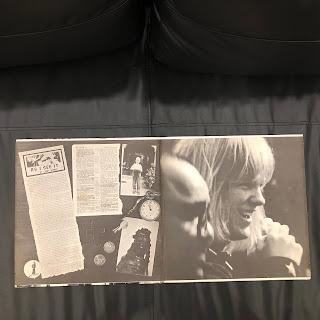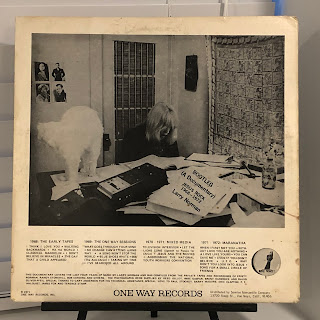I had heard snippets of Bootleg, although thinking on it now, I'll bet it was Street Level, (it was, thank you internet) from my friend Gerry, who seemed to have everything when I was a kid. It was an album that always had an air of mystery. As time went by I more of less forgot about this particular album. After the new material dried up, there seemed to be an inexhaustible treasure trove of old recordings that over the course of a many, many, many CDs seemed to cover just about everything, except the stuff on Bootleg, although it's been a while since I waded through them. Then at the age of 60 he passed away in 2008,
It made me sad. He was a polarizing figure who was I'm sure as much a saint as he wasn't. Rock and Roll is not an occupation for the faint of heart and I'm sure he was a jaded as any one who'd spent their lives on the road.
Larry Norman during his early years was always on a major label. For the
first two albums in his trilogy, after being released from Capitol he
would be signed first with Verve, and then he'd move to MGM. After this
he form his own label Solid Rock, but his distribution arm was handled
by Word.
Bootleg covers a time period of four years. Larry was 21 when the first People! album came out, and in 1969 Larry released Upon This Rock on Capitol records, and despite the album being a creative success, sales were another story, and he would be dropped by the label in 1970. Side one titled 1968: The Early Years contains a number of early versions of songs from his debut. Side two was 1969: The One Way Sessions, and many of these songs are featured on his trilogy and these early versions are cool to hear, and the bones of the songs are there, but just aren't there yet.
The second album is also broken into two sections. The first side 1970 - 1971: Mixed Media is a collection of interviews. Larry was all of maybe 23 when these were recorded. It's an interesting snapshot of the early Jesus Movement and there are more than a few references to end times theology, that feel very much of a point in time. However, the underlying sense of the secularization of society was something that was occurring, however, the underlying sense that Christians were being actively oppressed and rounded up just sounds hollow now. I'm sure there are people who will point to this and say he was right, the method of oppression was more cunning and silent, and accomplished the same ends without firing a shot. There is an earnestness to his delivery that was very much attuned to his audience. For me, this is more of a snapshot into the man and what helped make him tick. He was a natural storyteller and performer who could have an audience in the palm of his hand before they knew what was happening. I was able to see him on a couple of occasions, once with a band, and once solo and both times were riveting. The album closes with 1971 - 1972: Maranatha that gets back to the music, and there are a number of songs that would become classics (really they are, you just have to be in the right circle) on his later albums. This is probably my favourite section. It's really good.
Bootleg is an album for fans. It's a snapshot of a point in time that's a little like watching old home movies. Some of the songs are unfinished, the quality at times is grainy and a little out of focus.
In short it's awesome.



Comments
Post a Comment